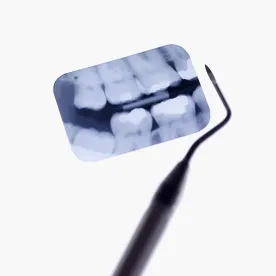Since March 21, dental practice owners in Michigan have been ordered to halt all nonessential procedures under Gov. Whitmer’s executive order. This restriction will remain in place until the governor terminates the current “state of emergency” in effect due to the COVID-19 pandemic.
Not only have COVID-19 and coronavirus caused enormous emotional stress for dental practice owners, but it has also made it difficult for these owners to meet financial and other obligations under their contracts with third parties such as landlords, vendors and lenders.
So, what options do dental practices have?
Review Contracts for Force Majeure Clauses
Dental practice owners should consider reviewing their contracts. Consider whether consulting with legal counsel or a financial adviser may be necessary to fully understand the contractual rights and obligations. One key provision to look for is a force majeure clause.
Force majeure clauses identify circumstances or events beyond the parties’ control, the occurrence of which could render performance of a contract impossible. When such unforeseeable events occur, force majeure clauses call for suspending, deferring or releasing a party, without liability, from the duty to perform its obligations under the contract. Frequent force majeure events include war, riots, famine, “acts of God” (e.g., extreme weather events, floods, etc.). If any pandemic-related language is listed in the clause (e.g., “epidemics,” “pandemics,” “quarantine,” and/or “diseases”) a dental practice would be in a stronger position to argue its non-performance—such as payment for or accepting goods or services—should be excused or suspended under the contract because of COVID-19.
Even if there is a force majeure clause in the contract and there is a good faith basis to conclude that COVID-19 qualifies as an excusable event, some contracts nonetheless state that any payments due must be paid even if a force majeure event occurs. For example, many office lease agreements or vendor supply agreements will excuse only “non-monetary” defaults. It is therefore critically important to review these contracts to fully understand the practice’s obligations and options.
Negotiate Outside Those Contracts
If non-performance under a contract cannot be temporarily excused because there is no force majeure clause or the current COVID-19 situation is not covered, dental practice owners should still consider negotiating an accommodation to such non-performance. Landlords and vendors may be sympathetic to the challenges encountered during this public health crisis because they, too, are experiencing similar challenges.
Beyond that, a dental practice may have leverage with a vendor if substitute goods or services can easily be supplied by a competitor – especially if the vendor agreement is nearing the end of its term. Similarly, a landlord may be more willing to extend payment obligations or otherwise suspend performance if a practice can commit to extending the lease terms, because landlords (like vendors) value long-term relationships.




 />i
/>i
